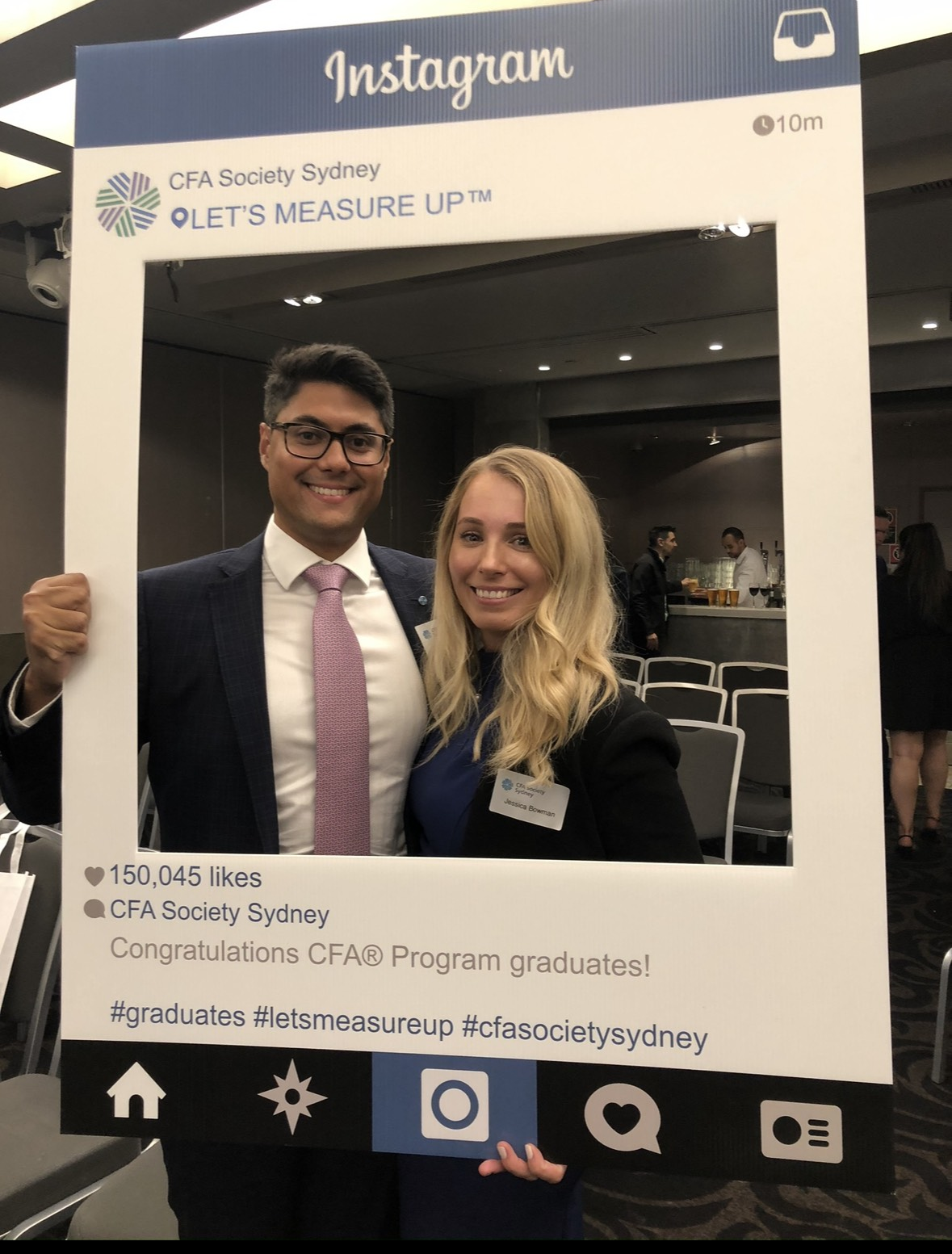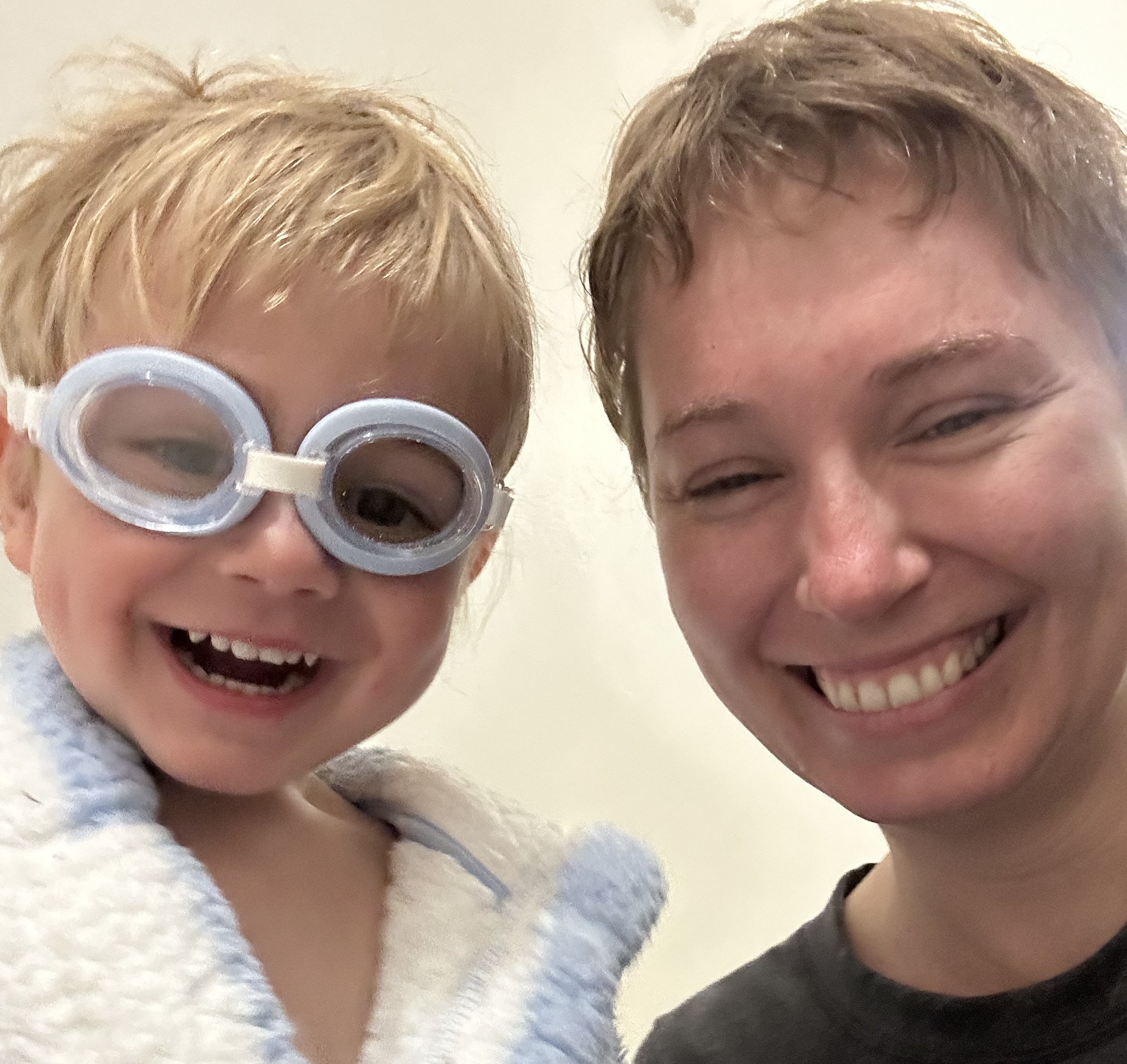- Home
- Mind & body
- The alarming rise in young bowel cancer cases: Jess is turning diagnosis into determination
At CBHS we help you manage your health challenges. We believe in offering you the services, support and tools you need to live your best life.
Health and Wellness Programs are available to support eligible members towards a healthier lifestyle. Each Health and Wellness Program is subject to its own eligibility criteria.
Contact us for more information and to confirm your eligibility for a program.
The alarming rise in young bowel cancer cases: Jess is turning diagnosis into determination

CBHS member Jessica Grewar is not your typical bowel cancer candidate… or so you might think. Jess (35), her husband Karri, and 21-month-old son Kai, enjoy an active, fit and healthy lifestyle in Sydney’s Bondi. The couple recently bought a home in the beachside suburb and had settled into life as a young family, with Jess having returned to work at CommBank flexibly four days per week.
After having Kai, I went back to work in October last year. I was the fittest I’d been, thanks to running up Bondi hill with a pram!
"I’ve worked at CBA for 16 years, starting as a teller and working my way up to my current role as a Senior Manager in Financial Crimes Compliance, helping manage the Anti-Bribery and Corruption Policy Suite. I love my job, the people I work with and overall, I just like to help people, both from a customer sense and internal staff perspective."
Jess has always been conscientious about her health, keeping up with all recommended annual health checks. So, she was shocked to receive a stage 4 cancer (advanced or metastatic) diagnosis in June 2025. It put an immediate pause to life as she knew it, and Jess took leave from her role to focus on her health.

“In early June, I noticed I had some light blood when I went to the toilet. It caught me off guard and I thought maybe I had just eaten too much watermelon with my toddler son. It played on my mind, so I took a picture and saw my GP. My GP had concerns and I had a blood test there and then, leaving with a referral to a gastroenterologist for a colonoscopy and a CT scan - just to rule anything out.”
Jess spared no time, booking the CT for the next day along with a gastroenterologist appointment. Meanwhile, her blood test results came back showing elevated inflammation markers.
“The gastroenterologist called me while I was in a meeting at work and said he was concerned with my CT scan. My colonoscopy was brought forward to the following day and, when I woke up from the procedure, I was told I had bowel cancer.”
An advanced (PET) scan later that week confirmed Jess’ worst fears – they hadn’t caught it early. Her oncologist sat her down and broke the news that the cancer had spread beyond the bowel, to her lymph nodes and liver.
It was like a bad dream. You think when you’re young if you get cancer, you’ll get it early or at least you’d feel unwell before it got too bad, but that didn’t happen for me. Aside from a little blood in my stool, I had no other symptoms.
Jess was initially told that surgery wasn’t an option, so she pushed to start chemo as quickly as possible. Given the strength of the chemo, Jess needed to have surgery to have a port put in her neck.
“Calls were made and that same evening I had my operation to have my port inserted. After my diagnosis on the 20th June, I started chemo four days later. I’ve just finished my fifth cycle of chemo and it’s going well so far. My tumour markers are now within range of a person without cancer and the tumours have started to shrink.”
Next stop for Jess was meeting with a top Sydney liver surgeon, who has advised he can perform an ALPPS procedure, currently one of the most advanced treatments for liver cancer. The two-stage procedure relies on the liver’s ability to regenerate, eventually re-growing enough healthy liver tissue to sustain the body.

While Jess is awaiting further results of chemo, she has been hard at work researching everything she can about bowel cancer. She was especially interested in why the rates are increasing so rapidly in younger people.
The 266% increase in young people getting bowel cancer blew my mind. If it’s happening, why is testing only really starting at 45. I personally had no family history, and DNA testing confirmed I didn’t have the genetics which would predispose me to the disease.
Jess is unfortunately one of the 1,700 young Australians who will this year hear the words, “You have bowel cancer”. While she is on leave undergoing treatment, Jess has turned her attention to advocating for better awareness that bowel cancer is not just for older people. She plans to continue the conversation on whether the screening program age needs to be lowered and is working with Hugo Toovey from 25 Stay Alive to meet with her local MP – Allegra Spender to see what can be done around education of risk factors, symptoms and early screening for under 45s.
Symptoms of bowel cancer
Bowel Cancer Australia say that not everyone will experience symptoms, particularly in the early stages of bowel cancer. While these symptoms won’t always mean cancer, if you experience any of these for two weeks or longer, please don’t wait to see your GP.
- Blood in your poo or rectal bleeding
Never ignore bright red or very dark blood - A recent, persistent change in bowel habit
Think looser, more diarrhoea-like poo, constipation, or going to the toilet more often, or irregularity if you’ve previously been regular - A change in shape or appearance of your poo
For example, narrower poos than usual or mucus in poo - Frequent pain or cramps
A feeling of fullness or bloating in the bowel or rectum - Unexplained anaemia
A low red blood count causing tiredness, weakness or weight loss - A feeling that the bowel has not emptied completely after going to the toilet
- Pain or a lump in the anus or rectum
- Abdominal pain or swelling
- Family history of bowel cancer (aside from very elderly relatives)
Source: Bowel Cancer Australia
With liver surgery on the horizon and her oncologist “throwing the kitchen sink” at her chemo treatment, Jess has a fighting chance. However, without quick action when she noticed her first and only symptom, treatment options may have been a lot more limited and she may have been only looking at palliative care.
If this helps detect this earlier for some people, we would have done a great thing. If something isn’t right, make an appointment to speak with your GP as soon as possible, take photos and don’t take no for an answer.
Jess says, “It’s never too late to take a proactive approach to your health, whether that’s eating less processed food, exercising more, or managing stress and mental health as you need to. Your health is your wealth.”
Learn more about bowel cancer, its symptoms and if you might be at greater risk, at the Cancer Council website and Bowel Cancer Australia.
All information contained in this article is intended for general information purposes only. The information provided should not be relied upon as medical advice and does not supersede or replace a consultation with a suitably qualified healthcare professional.
Health and wellbeing
programs & support
You Belong to More with CBHS Hospital cover:
- Greater choice over your health options including who treats you
- Get care at home with Hospital Substitute Treatment program
- Free health and wellbeing programs to support your health challenges
Live your healthiest, happiest life with CBHS Extras cover:
- Benefits for proactive health checks e.g. bone density tests, eye screenings
- Keep up your care with telehealth and digital options
- Save on dental and optical with CBHS Choice Network providers
